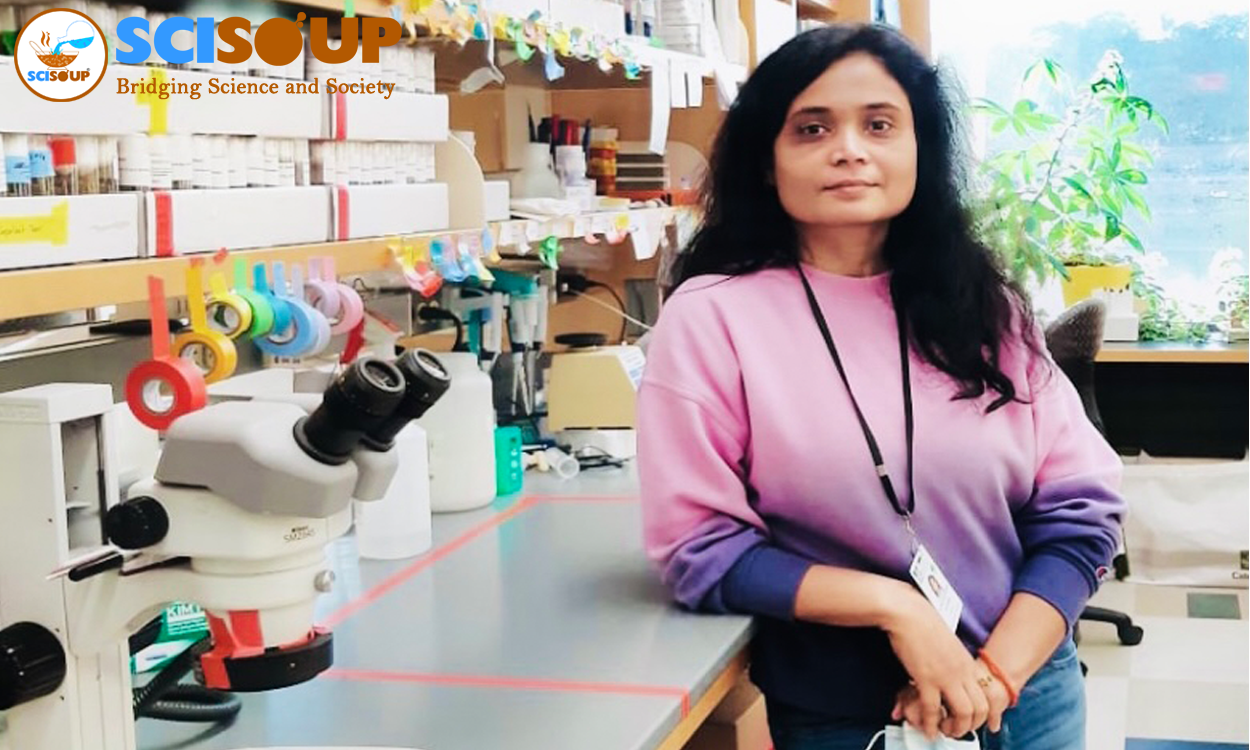
You are nearing the end of your doctoral journey and can’t wait to receive a Ph.D. degree. In the past few years, you have experienced a roller-coaster ride filled with excitement, blood, sweat, and tears. “Wow! Applaud! you have almost reached the finish line”. Now it is time to plan your next move. You may be thinking of applying for a postdoctoral position soon. Think ahead! At this juncture following lines by Tony Robbins may be beneficial -
“Expect change. Analyze the landscape. Take the opportunities. Stop being the chess piece; become the player. It’s your move.” – Tony Robbins
JAN 11, 2022 | BY RATNA CHATURVEDI
Picking the right postdoc lab can set the stage for your successful career launch. Here, I am sharing some of the experiences from my Post - Doctoral (postdoc) and the knowledge gained as a research scientist from interacting and mentoring senior Ph.Ds. and fresh postdocs. This could be useful for advanced-year Ph.D. students. Let’s start with some thought-provoking questions!
Why post-doctoral experience is needed?
Take some time to reflect on what your career goals are? You are the one who cares the most about your career direction. As a postdoc, you will refine your knowledge, acquire new skills, learn independence and leadership. Many times, you will write grants, develop new ideas into research projects, and collaborate with different labs. Young graduate students and trainees look up to you for mentoring and guidance. A postdoctoral job in a new country will provide you with a much-required global perspective. Look worldwide and be open to relocating for a few years.
A postdoctoral stint offers a brand-new opportunity to make an informed choice between academia and industry. If you aspire to be a PI and start your lab, you will have a chance to translate your postdoc ideas into exciting research projects. Your postdoc experience can help in translating your ideas into a multimillion-dollar successful start-up (as collateral or main goal). Many postdocs have also beaten path and find their calling in government, advisory, venture capital, or teaching jobs. The length of a postdoc job varies but keep in mind that this is a temporary position.
What to look for in postdoc lab?
Think about your long-term goals and use your postdoc as a launching pad to reach there. Your next lab should have a good research track record, match your interests and your future PI must be a good mentor. There are plenty of labs around the globe that do good science but may not be ideal for your mental health and career. Never forget that you are a trained professional and there is a good chance that you will find better options than settling for a mediocre place. Have a chat with your future mentor about your plan and sense if it works for both of you. A good ‘Guru’ makes a lot of difference in the journey!
Be a part of a team that is productive and collaborative. Consider the size of the lab, look for current and past funding of the lab. Publication’s quality and frequency are indicators of consistent performance. It is key to know about the career trajectories of alumni and you will know how supportive this lab will be for you too. Look for how many postdocs in the lab have their independent fellowships? Does PI provide support for early career development opportunities? Some PIs only care about their growth and grants. Avoid them. Don’t rush, choose carefully, ask around, use your network of friends, and see what fits well with your life ambition and goals. Make an informed decision.
When and how to find a suitable lab?
You formally start contacting labs for a postdoc opportunity in the last year of your Ph.D. A good approach is to start building your network early. When you read some exciting research papers of your interest, try to add their name to your potential postdoc lab list. A right network opportunity could be when you go to conferences. Talk to people (both, postdocs, and PIs) after their presentations and during poster sessions. Try to join meetings, give talks, present posters, talk about your current research and future interests. Be bold and introduce yourself to potential mentors. Most of the leaders in science love candidates who take personal initiative. Also, you can request your Ph.D. supervisor and other collaborators to introduce you to their colleagues if they are on your potential postdoc lab list. If possible, visit the lab to get a sense of work culture.
How to prepare your application?
Postdoc openings are advertised on several websites, year-round. Pay attention to the specific skill sets required and if it matches you, tailor your application accordingly. Don’t send a generic email. It is important to mention why are you interested in a particular lab. Your cover letter should be concise and enticing enough for a PI to look at your CV. Your CV should cover your academic credentials, publications, other professional and leadership accomplishments in 2-3 pages. Highlight the keywords mentioned in the job requirements to show that you are a strong candidate. Give Linkedin, ResearchGate, and ORCID IDs. Many good labs have rolling postdoc positions and waiting time close to one year before the next hiring. The solution is to ask early and be persistent. Also, sending cold emails to show your genuine interest in their research project is a great idea.
Go for it. Sometimes a great opportunity comes your way from unexpected places. I wish you ‘good luck' in your postdoc job hunting.
Author Dr. Ratna Chaturvedi (Ph.D.) is a research Scientist at Department of Neurobiology, University of Massachusetts Medical School, Worcester, MA., USA.
Edited By : Dr. Rajesh D. Gunage

Send your opinions, questions, and suggestions for future column topics and stories - to scisoup@gmail.com and engage with us on